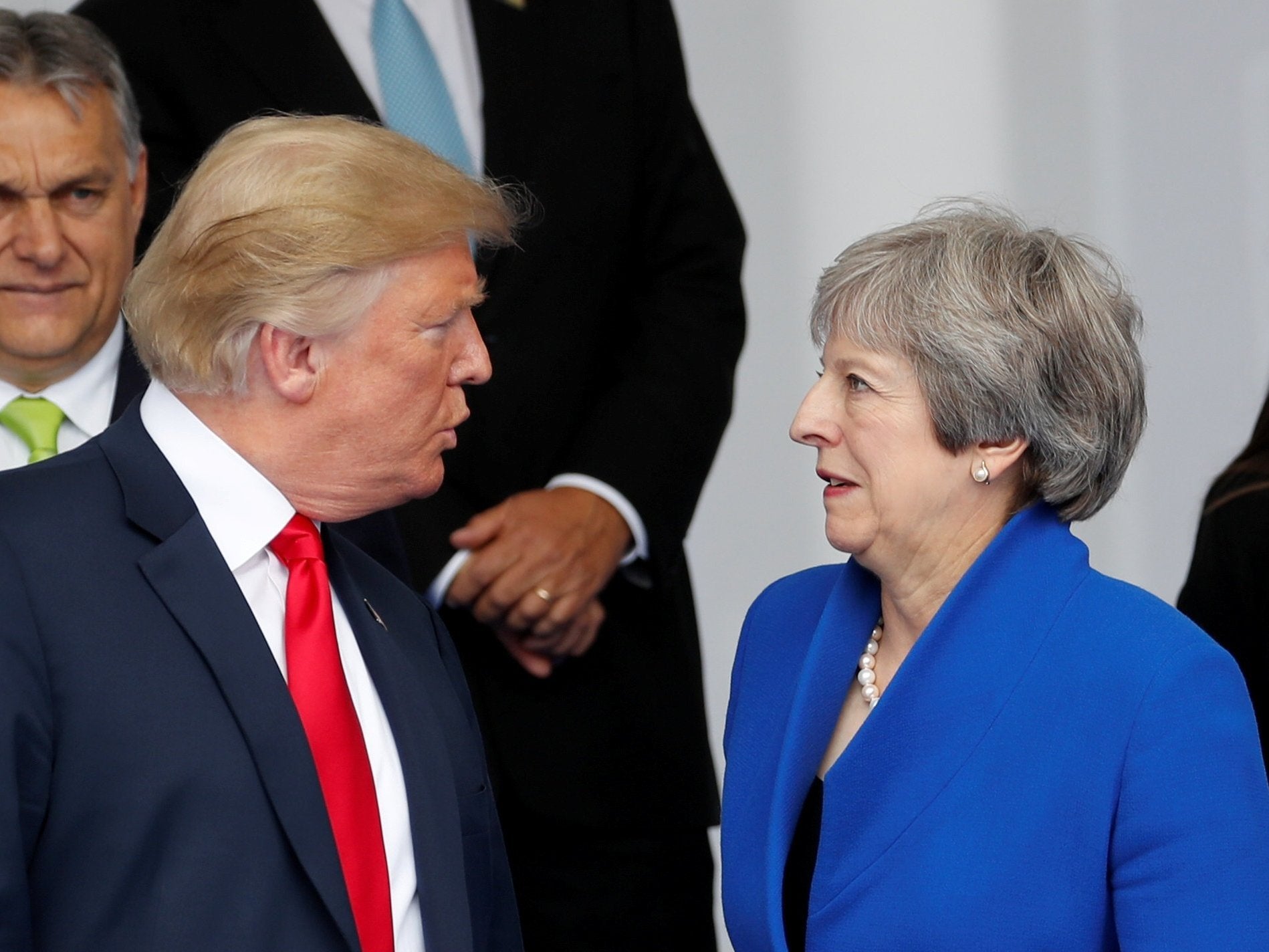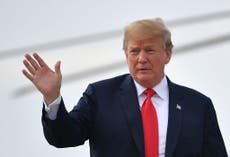As the former ambassador to the US, believe me when I say we should care what Trump thinks on his visit to London
The plain truth is that the US is our single most important partner and ally and President Trump is its democratically elected leader


It’s a bit like the hurricane season. Just after Hurricane Brexit blows through (no doubt to return), Hurricane Trump looms on the horizon, ready to strike land on Thursday when the president of the United States and the first lady begin a working visit to our country.
We are told that the president will meet the Queen, have talks with Theresa May and attend a grand dinner at Blenheim Palace, where one of Trump’s heroes, Winston Churchill, was born. He will then spend the weekend in Scotland, no doubt to visit the golfing resorts he owns and, perhaps, play a round or two.
To say this visit is controversial is to put it very gently indeed. Trump’s every move will be dogged by demonstrations, capped by the flying from Parliament Square of a large inflatable caricature of Trump in a nappy.
We have seen something similar before. In 2003, President George W Bush, in the teeth of furious protests against the Iraq war, paid a full-blown state visit to Britain. So fearful was the US Secret Service for his security that they proposed shutting down the whole of London. This, of course, did not happen. The visit went ahead successfully. Bush, tough and impervious to the noise of demonstration, never let the protests get to him.
We cannot be sure that the notoriously thin-skinned Trump will react with similar composure. Everything possible will be done to shield him and the first lady from the demonstrators. Helicopters, we are told, will fly him to Windsor to meet the Queen and to Chequers, deep in the Buckinghamshire countryside, for his talks with the prime minister. The US ambassador’s residence in Regent’s Park, where the Trumps are expected to stay, lies well back from the road, while the gigantic Blenheim Palace lies even further from any public thoroughfare.
The right to demonstrate is, of course, a basic freedom, which should never be curtailed to spare the feelings of a visiting dignitary. But for those who find Trump abhorrent, including, so it seems, the mayor of London, there are some facts of life to be remembered.
I received this week an email from a journalist friend in the US, who is one of Trump’s fiercest critics. She found the balloon offensive because, in her view, it sought to mock the office of the presidency and the American republic itself. There are millions of Americans like her who distinguish the individual who occupies the White House from the office itself. They may hate Trump. But they revere their institutions.
Should we care? Yes, we should. Like it or not, we have vast interests invested in the US – economic, military, intelligence, to name but three. Our security and prosperity depend in large measure on keeping our close and long-standing partnership in good working order. Forget the woolly, sentimentalised rhetoric of the “special relationship”, we are talking hard national interests here. The plain truth is that the US is our single most important partner and ally and President Trump is its democratically elected leader.
There are plenty of people in Britain who won’t like this message. For them Trump is not welcome. After all, leave aside some of the dubious features of his personal behaviour and his clumsy comments on domestic British affairs, has he not slapped 25 per cent tariffs on our exports of steel and aluminium, walked out of the Iran nuclear deal, to which the UK is party, and rejected the Paris agreement on climate change, which we support?
Just before his visit to the UK, Trump will attend – with Theresa May – a Nato summit in Brussels. What if he drives a coach and horses through Nato in the destructive way that he wrecked the recent G7 meeting in Canada? How could we then call him an ally?
For me, all of this is an argument for engaging with him, not turning our backs. We should not look at his visit to our shores in isolation. It is preceded by the Nato meeting and followed next Monday by a Trump-Putin summit in Helsinki. These are three acts of a single drama in which our national security, and that of our Nato allies, is at stake.
Nor should we forget that Trump’s complaint that the Europeans do not pay a fair share of the costs of their own defence is a long standing and well grounded American grievance. I first heard it at a Nato meeting in 1984.
With all this in mind, May’s meeting with Trump could – perhaps should – be one of the most consequential Anglo-American summits since 1945.
Sir Christopher Meyer is a former British ambassador to the United States and Germany


Join our commenting forum
Join thought-provoking conversations, follow other Independent readers and see their replies